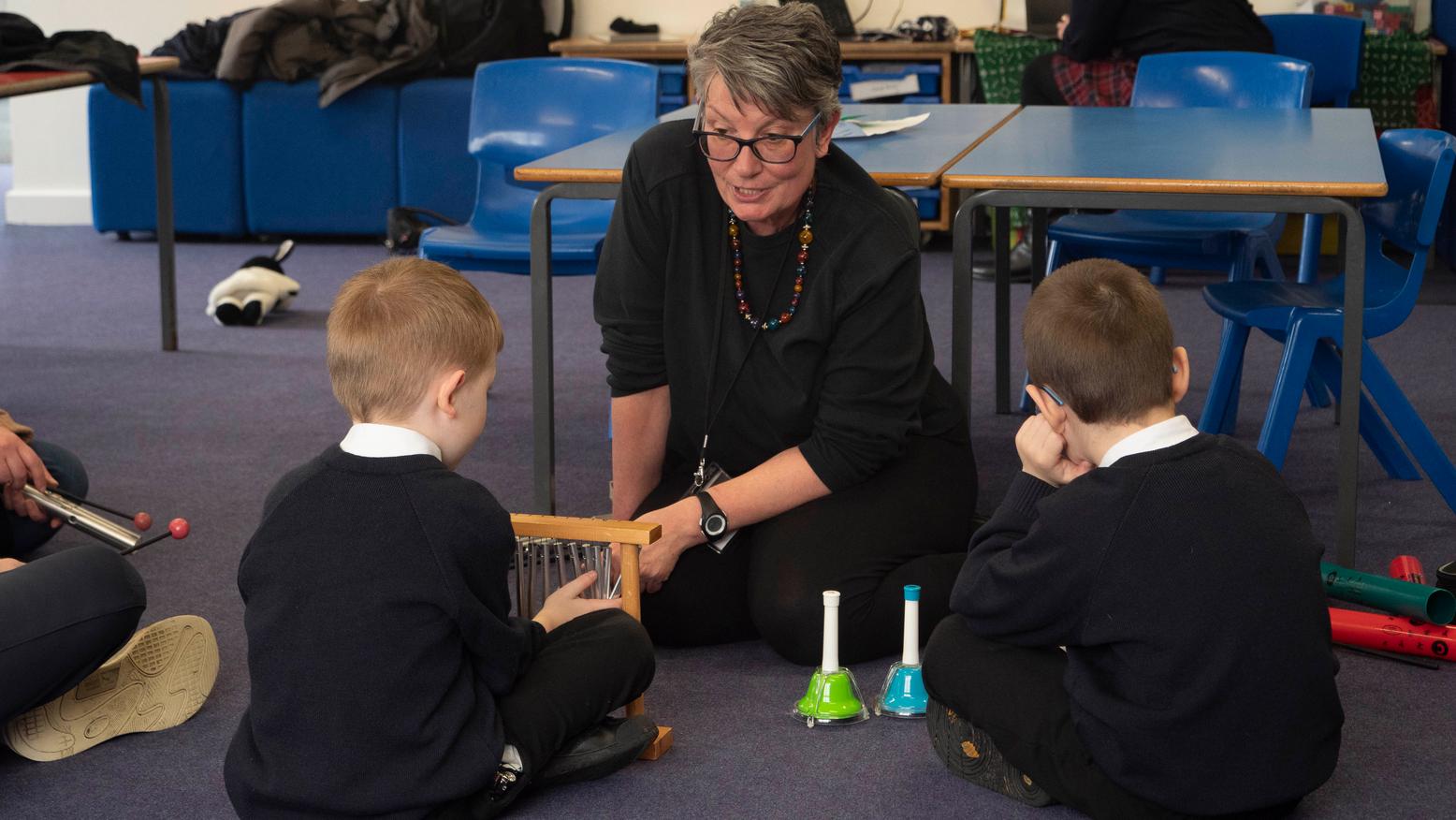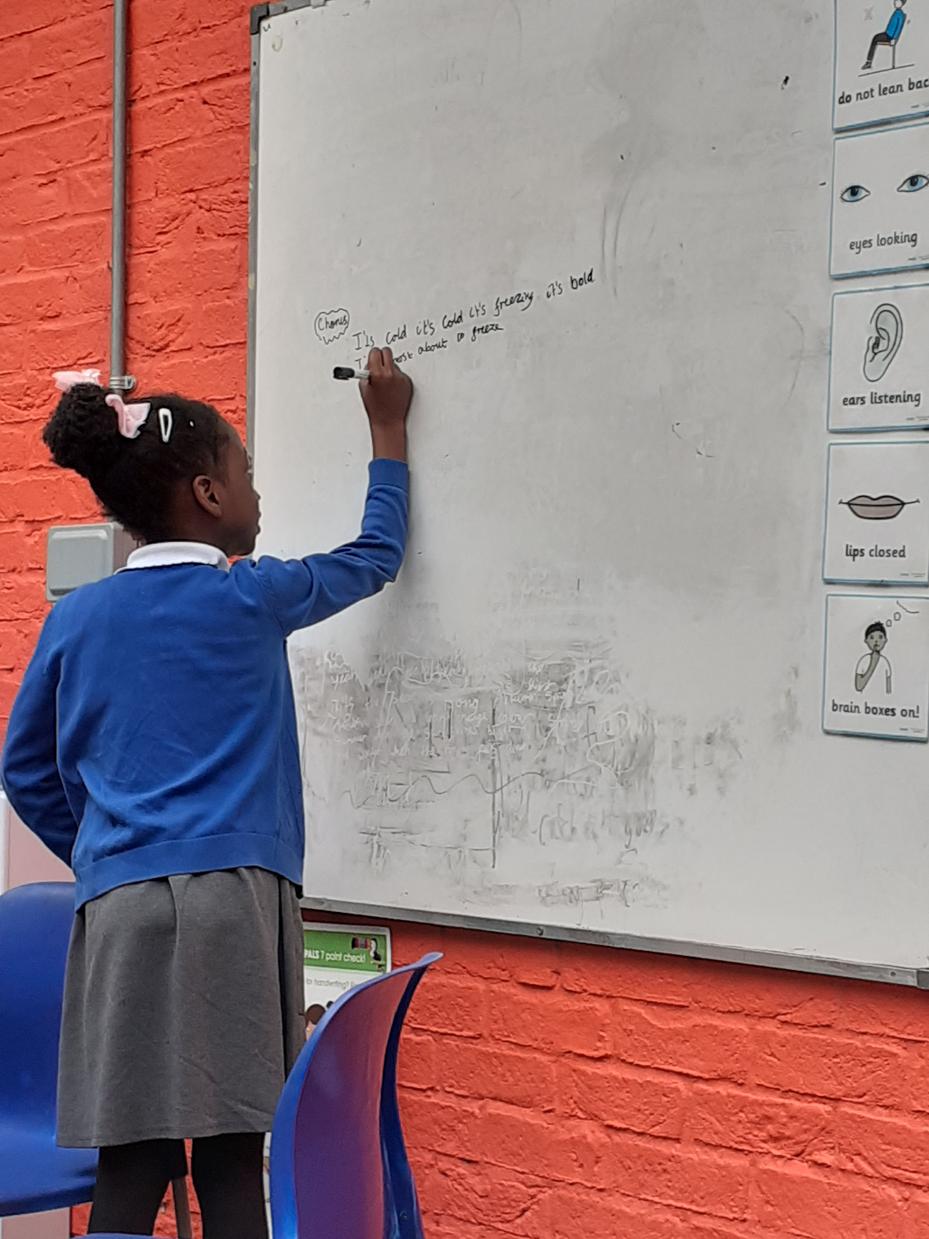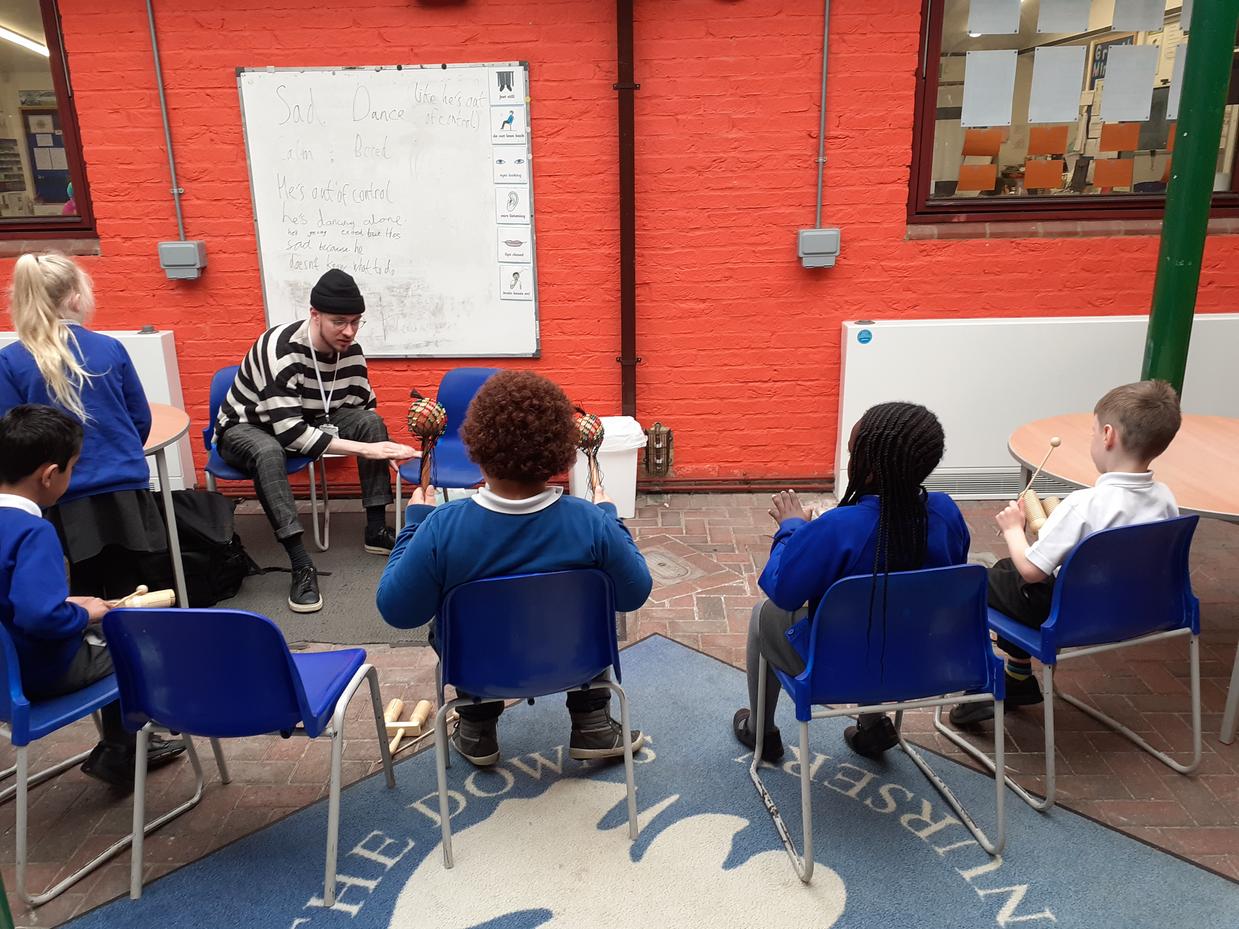
4 minute read
Changing Tracks
Supporting pupil wellbeing through music to prevent school exclusion
IJE AMAECHI
At Changing Tracks, a Youth Music-funded strategic programme hosted by Hertfordshire Music Service (HMS), we’ve been thinking about defining instrumental music teaching more broadly than teaching a specific instrument to an individual or class.
Ije Amaechi is an instrumental music teacher for HMS and project officer for Changing Tracks. In this article, she outlines an action research programme that helps schools and music services to identify vulnerable pupils, and provide music activities to benefit their wellbeing and prevent later school exclusion.

I've been part of a trauma-informed Creative Musical Nurture Group programme for the past four years. In the programme, we've been focusing more on personal and social outcomes for children in 'challenging circumstances' or at risk of school exclusion. These include increased agency, resilience, confidence, youth leadership and a greater sense of belonging through musical community.
Initiated by a HMS First Access tutor, a music nurture group is a weekly 30-minute creative music-making programme for three to five young people who are identified by the school SENCO as at risk of social or later school exclusion. Often this is as a result of early emotional difficulties preventing children settling into school and socialising, but a key element is framing the work as musical activity rather than a therapeutic-style activity.
After establishing a pilot nurture group network in Stevenage, we rolled out the project nationally as an action research project, with 17 music service/hub instrumental/vocal music teachers, from October 2021 to March 2022. There were 20 weeks of 30-minute nurture group sessions led by instrumental teachers. These were supported by an initial trauma-informed training session, and followed by monthly online critical reflection groups. Outcomes were captured by the tutors writing case study and instrumental teaching reports, with input from young people, SENCOs and families.
This nurture group model encourages instrumental music teachers’ creativity, and letting go of certain expectations in their planning, delivery and reflections on their practice. One instrumental music teacher, Eleanor Gibson from Peterborough Music Hub, said “It’s easy to create a structured series of lessons, but this ... was a question of planting seeds - there’s this way of doing music, or you can do this - and allowing space for their own, amazing, creativity…”.
When we ask the young people what their musical interests are and show that their opinion matters and is listened to, we see a difference in their engagement and participation within the group. This is because it is a project that is theirs - they have a part to play in the development and direction of the sessions as well as the (optional) performance at the end of the project.
This project has helped change young people's relationship with music For example, one of my students said
I didn't used to care about music, but now it's socool. Now music is in my soul! Whenever I see something (plays improvised rhythm on the chair).
One of my nurture groups created their own performance using djembes, piano and percussion instruments. Their story was about some people exploring a haunted house, with creepy noises (using the inbuilt effects on the keyboard), improvised solo piano parts and drumming on djembes together with rhythms that they created. At the end they tell the audience it wasn’t really a haunted house, just a birthday party at a haunted house!
They decided who would play at which point, with my guidance, the story line and the whole feeling of the piece, using skills they had learnt in the numerous sessions before.
Another young person said:
I like coming to music sessions. It helps me stop feeling stressed– I stress over little things. I am free to be myself here and Amber helps me do that. There are things going on with me and these classes help me forget about that for thirty minutes. It’s a really calming place and my favourite part of the week.
Changing Tracks has just published a review of the outcomes of the national pilot project which you can read at www.changingtracks.org.uk
The report describes the positive outcomes for young people and the teachers, many of whom reported they felt the project had improved their teaching. It also describes outcomes for schools, for whom it added an additional means of pastoral support, and for the music services,some of whom felt it had raised the profile of their work within school and local authority targeted support teams.





